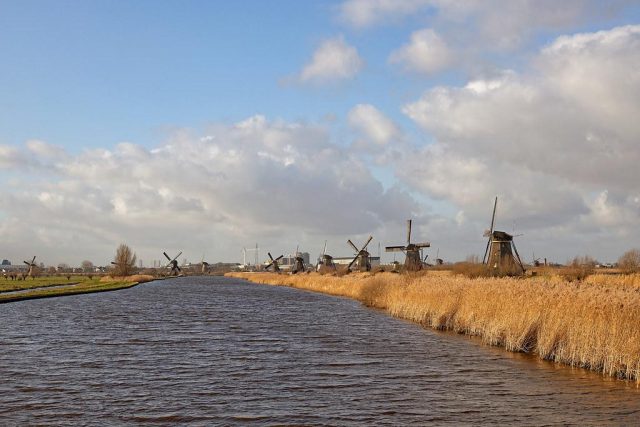In an age where travel has become more accessible than ever, the world is at our fingertips, ready to be explored, cherished, and inevitably impacted. As globetrotters set their sights on pristine beaches, lush forests, and bustling cities, an ethical dilemma surfaces: should tourists boycott destinations grappling with environmental issues? This question is not merely a call for introspection but a pressing debate that intertwines the allure of adventure with the responsibility of stewardship. As we journey through this article, we will navigate the intricate landscape of tourism’s impact on vulnerable environments, weighing the power of the boycott against the potential for positive change through mindful travel. Whether you’re a seasoned traveler or a conscientious observer, this exploration seeks to illuminate the paths we can take to ensure that our footprints—literal and metaphorical—are as light as possible.
Impact of Tourism on Fragile Ecosystems
The delicate balance of nature in fragile ecosystems can be profoundly disrupted by tourism activities. These areas, often characterized by unique flora and fauna, are highly susceptible to the pressures of increased human presence. Unregulated tourism can lead to habitat destruction, pollution, and the introduction of invasive species. As more visitors flock to these destinations, the demand for resources such as water and energy surges, often surpassing what the local environment can sustainably provide. This can result in significant ecological degradation, diminishing the very attractions that drew tourists in the first place.
- Increased foot traffic can lead to soil erosion and damage to plant life.
- Improper waste management contributes to pollution and affects local wildlife.
- Tourist infrastructure development often encroaches on natural habitats.
However, tourism also has the potential to foster conservation efforts. By raising awareness and generating funding for environmental protection, responsible tourism can play a pivotal role in preserving these ecosystems. The key lies in finding a balance between promoting tourism and safeguarding the natural world. Sustainable practices and policies must be implemented to ensure that the impact of tourism is minimized and that these precious ecosystems are preserved for future generations.

Understanding the Local Perspective on Environmental Challenges
Engaging with the environmental challenges faced by a destination requires a nuanced understanding of the local context. For tourists, this means exploring beyond the surface-level concerns and delving into how these issues impact the community. It’s essential to recognize that local perspectives are often shaped by unique cultural, economic, and historical factors. These factors can influence how environmental challenges are perceived and addressed. Listening to local voices can provide insight into whether tourism exacerbates or alleviates these challenges. Some community members may rely heavily on tourism for their livelihoods, while others might see it as a contributing factor to environmental degradation.
- Cultural Sensitivity: Understanding local customs and practices can offer clues about how the community interacts with its environment.
- Economic Dependency: Many destinations depend on tourism as a significant source of income, making a boycott potentially harmful to local economies.
- Grassroots Initiatives: Often, local communities have their own strategies and projects aimed at addressing environmental issues. Supporting these can be more beneficial than boycotting.
By integrating these perspectives, tourists can make informed decisions that support sustainable practices and foster positive relationships with the communities they visit. This approach ensures that actions taken are not only environmentally conscious but also socially responsible, creating a more balanced and constructive dialogue around tourism and environmental challenges.

Weighing the Ethical Implications of Travel Choices
- Understanding the Impact: When considering whether to visit destinations grappling with environmental challenges, tourists must weigh the potential consequences of their choices. On one hand, travel can infuse much-needed economic support into local communities, helping fund conservation efforts and incentivize sustainable practices. On the other, tourism can exacerbate existing issues, increasing the strain on already fragile ecosystems. It’s essential for travelers to research and understand the specific environmental issues of a destination and how their presence might influence these challenges.
- Responsible Travel Practices: Instead of outright boycotts, tourists might explore sustainable travel options that promote positive change. This can include staying at eco-friendly accommodations, supporting local businesses that prioritize sustainability, and engaging in activities that educate and raise awareness about environmental issues. Additionally, travelers can participate in volunteer programs that focus on environmental restoration, thereby contributing directly to the solutions. By choosing to travel responsibly, tourists can transform their vacations into opportunities for meaningful impact.

Guidelines for Responsible and Sustainable Tourism
As travelers, embracing responsible tourism involves more than just choosing eco-friendly accommodations. It requires a commitment to understanding and respecting the environmental, cultural, and social dynamics of the destinations we visit. Here are some guidelines to consider:
- Educate Yourself: Before you travel, research the environmental challenges facing your destination. Understanding these issues will help you make informed decisions about your visit.
- Support Local Conservation Efforts: Look for opportunities to contribute to conservation projects or support local businesses that prioritize sustainability.
- Reduce Your Footprint: Practice eco-friendly habits such as minimizing waste, conserving water and energy, and using public transportation.
- Respect Local Cultures and Communities: Engage with local cultures respectfully and seek to benefit the communities you visit economically and socially.
By following these practices, tourists can help mitigate the negative impacts of travel while still enjoying the unique experiences that different destinations offer. The goal is to travel in a way that is mindful of the planet and its people, ensuring that tourism remains a force for positive change.
Final Thoughts
In the intricate tapestry of travel, the question of whether to boycott destinations plagued by environmental issues remains a complex thread, woven with strands of ethical considerations, economic realities, and personal values. As we wander through this world, each step we take leaves an imprint, not just on the paths we tread, but on the communities and ecosystems that host us. It is a dance of responsibility and discovery, urging us to weigh our wanderlust against the impact we might have.
Ultimately, the choice rests with each traveler, as unique as the journeys they embark upon. Whether you choose to boycott or to engage in mindful travel, the key lies in awareness and action. As we close this chapter of exploration, let us carry forward a spirit of inquiry and respect, ensuring that the footprints we leave behind tell a story of conscious choices and shared stewardship of our planet. The world awaits, rich with experiences and lessons, ready to be discovered with eyes wide open and hearts attuned to the symphony of nature.


































